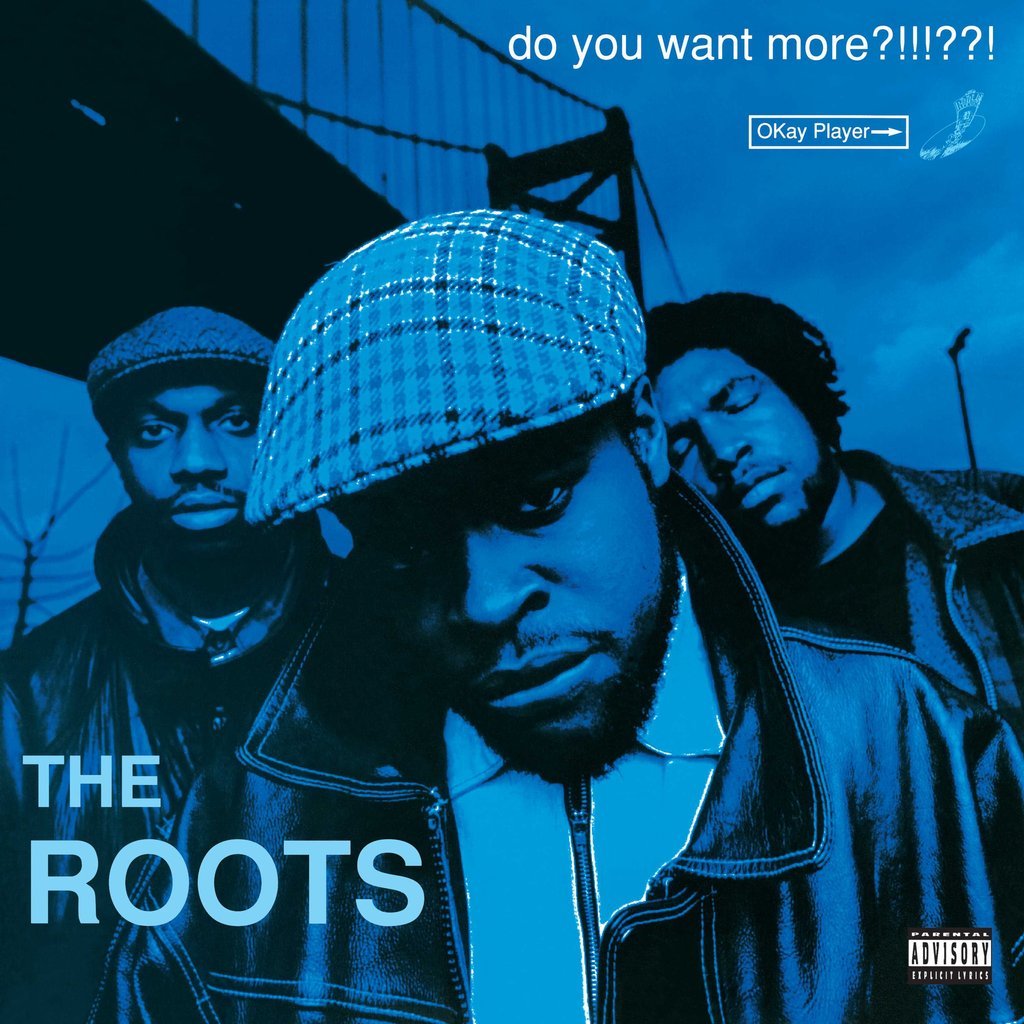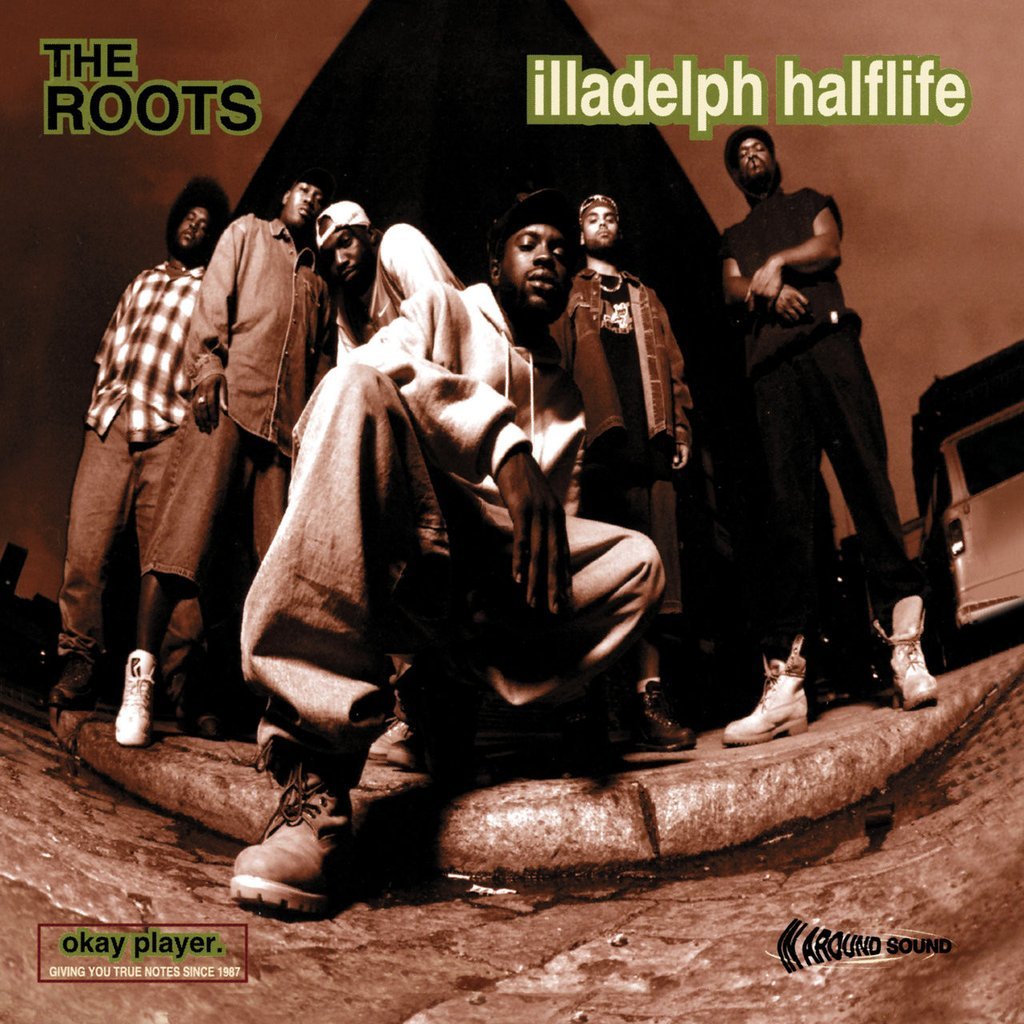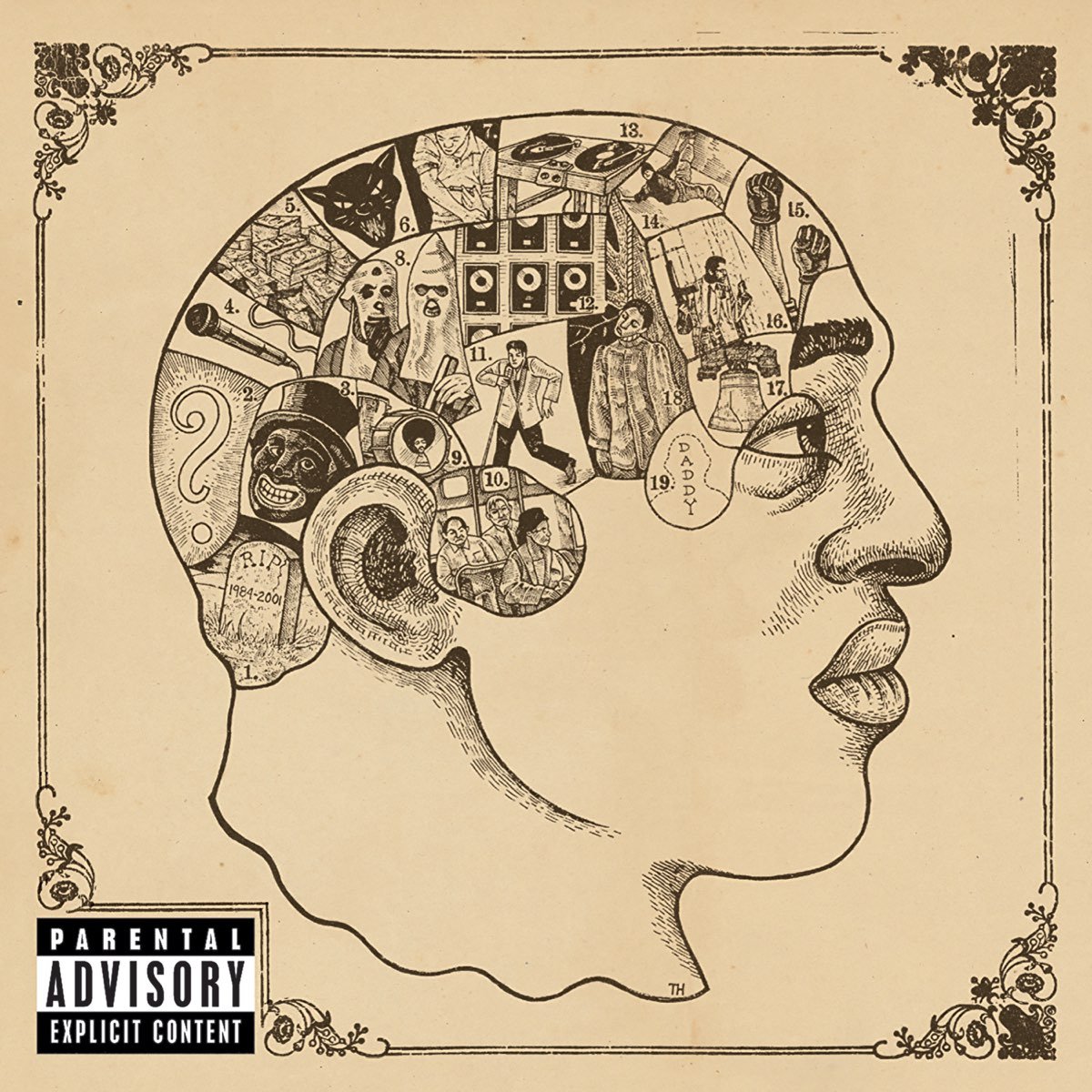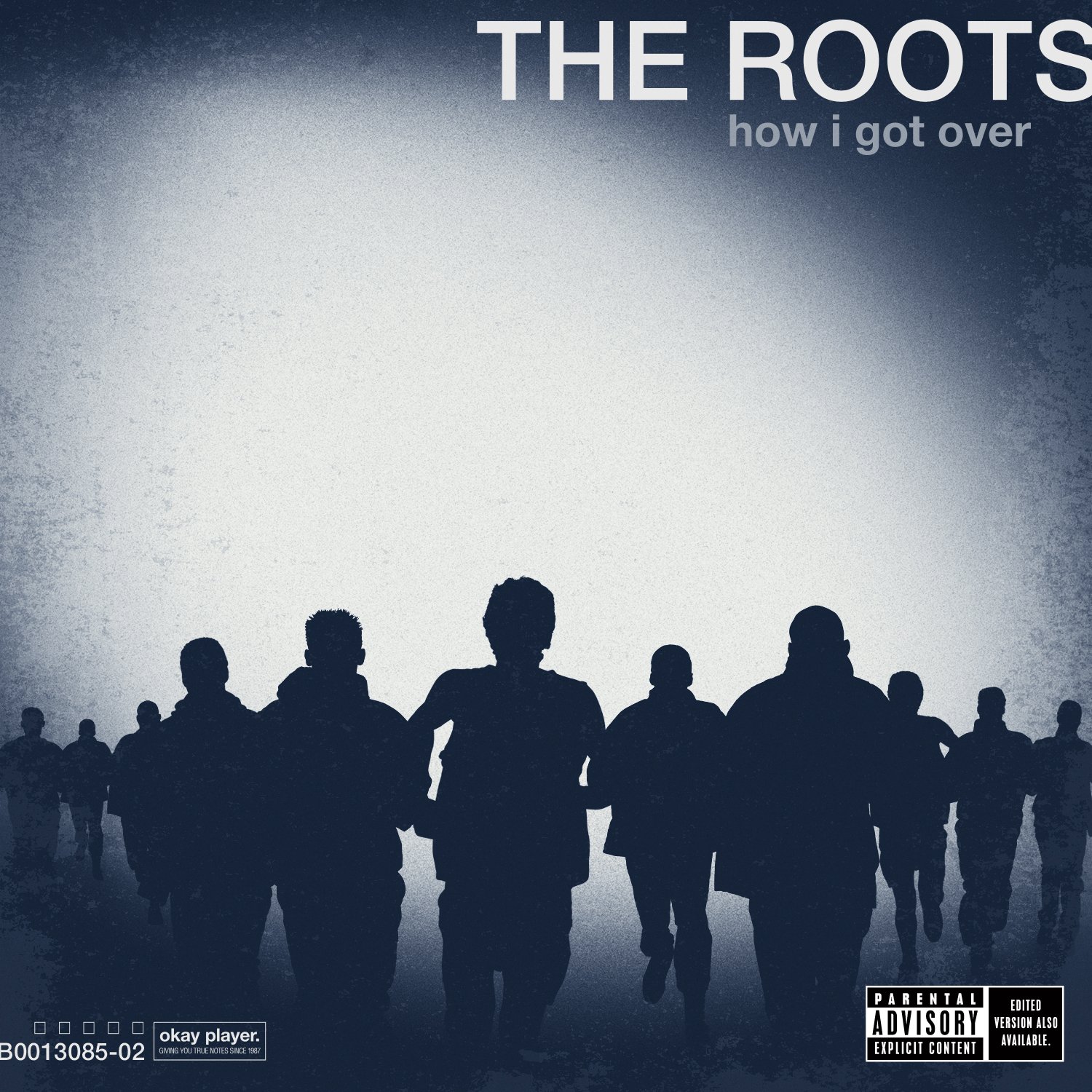Happy 25th Anniversary to The Roots’ fourth studio album Things Fall Apart, originally released February 23, 1999.
The Roots open their fourth album Things Fall Apart with snippets from the Spike Lee Joint Mo’ Better Blues (1990). In particular, a scene where Bleek Gilliam (as played by Denzel Washington) argues with Shadow Henderson (as played by Wesley Snipes) about the scarcity of Black people present at performances by their jazz quintet.
“It incenses me that our own people don’t realize our own heritage, our own culture,” Bleek rages. “This is our music, man!”
“Everything you just said is bullshit,” Shadow counters. “The people don't come because you grandiose motherfuckers don’t play shit that they like. If you played the shit that they like, then people would come, simple as that.”
As the argument fades out, in come the words of Media Assassin Harry Allen, opining how record labels and audiences treat hip-hop albums as disposable, valuing them neither as art nor product. All of these sentiments shape Things Fall Apart, which was released 25 years ago.
Not only is Things Fall Apart arguably the best hip-hop album of 1999, but it’s also one of the best hip-hop albums of the late ’90s, and the group’s strongest overall effort. By 1999, The Roots had already been making a convincing case as one of the most talented hip-hop groups of the 1990s. With Things Fall Apart, their most fully realized and best-executed album, they solidified their status as one of the most indispensable hip-hop groups of all time.
Already known as one of the best live acts in the music business, The Roots featured an incredibly dynamic collection of musicians, including drummer Ahmir “Questlove” Thompson, bassist Leonard “Hub” Hubbard, and keyboardist Kamal Gray. In 1999, the ever enigmatic Tariq “Black Thought” Trotter was establishing himself as one of the most gifted emcees alive, and the even more mysterious Malik Abdul Basit (a.k.a. the late Malik B) continued to be the group’s unsung component.
The Roots were acutely aware of the pop phenomenon that hip-hop had become during the late ’90s, and they were suitably conflicted. They wanted to create music that would appeal to those who weren’t “coffee shop chicks and white dudes,” but were wary that following trends could seriously reduce their Illadelph Halflife. They wanted to record material that was true to their esoteric influences, but wouldn’t end up sounding completely inaccessible.
The Roots found a way to thread this particularly tricky needle with Things Falls Apart. It’s one of those rare albums that provides something for all stripes of hip-hop heads, without sounding like its pandering to any one group. The group was rewarded for their efforts, as Things Fall Apart was the ensemble’s most commercially successful album, quickly going Gold and eventually certified platinum. The album earned the group the strongest critical accolades of its career, and the single “You Got Me” featuring Erykah Badu earned a GRAMMY for Best Rap Performance by a Duo or Group.
Things Fall Apart is the product of a particularly fertile creative time for the group. James Poysner became an integral component of The Roots’ production crew during this period, and continued to work with Questlove and others as a member of the Soulquarians. Meanwhile, Scott Storch, the group’s original keyboardist, was growing into his own as a producer, and continued to shape the group’s sound on Things Fall Apart from behind the boards. The album was recorded in Manhattan’s famed Electric Ladyland studios around the same time as D’Angelo’s Voodoo (2000), Badu’s Mama’s Gun (2000), and Common’s Like Water For Chocolate (2000), all classics in their own right. There was a lot of production and sound overlap between each of the albums, though each one maintained its own distinct and unique identity. The group allegedly recorded close to 150 tracks during these sessions, before whittling them down to 14 full songs and four interludes.
Listen to the Album + Watch the Official Videos:
“The Next Movement” is a prime example of how The Roots have created hip-hop that satisfies the core audience as well as casual listeners. Centered around a graceful piano track and background vocals from the R&B group the Jazzyfatnastees, Black Thought conducts a lyrical clinic, likening his emcee existence to that of the life of a plant, rapping “The Black Thought, ill syllablist out the Fifth / This heavyweight rap shit I’m about to lift / Like a phylum lift up it's seed to sunlight / I plug in the mic, draw like a gunfight / I never use a cordless, or stand applaud-less / Sipping chlorophyll out of ill silver goblets.”
“Dynamite!” is the album’s jazziest concoction, sporting a bouncy bassline sample crafted by a still young James “Jay Dee” Yancey a.k.a. J Dilla, then a member of Slum Village. His work here came before he really started earning accolades as one of the most inventive producers on the planet. Black Thought and the lesser-known Roots affiliate Elo the Cosmic Eye continuously trade verses back and forth. The springy yet understated beat is perfect for the two emcees to play off each other, with the final line from each of their verses flowing effortlessly into the first line of the next verse.
The Roots spend good portions of Things Fall Apart honoring the late ’80s and early ‘90s hip-hop aesthetic, sometimes in ways that are accessible, and other times going the obscure route. The two-part album opening “Table of Contents” falls into the latter category. The first part of the track samples the beat from “Kibbles & Bits” by the Alliance, an obscure album track by an obscure late ’80s group from an obscure late ’80s compilation, The First Priority Music Family: Basement Flavor (1988). Questlove crafts the track to make it sound as lo-fi as possible. The sloppy, almost offbeat tambourines slide across the tracks, to compliment Quest’s gritty drums. The static-filled, murky, and chaotic track is mixed so that Black Thought’s verse only comes through the right channel. Thought’s effortless flows suit the grimy aesthetic, as he boasts, “It’s safe to assume, in all confidence / That I’m one of the illest in the seven continents.”
Similarly, on “Without a Doubt,” The Roots honor their ’80s Philly hip-hop lineage. The song is essentially a recreation of one of gangsta rap pioneer Schoolly D’s signature tracks, “Saturday Night Live.” Along with its stripped-down drum track and distinctive cowbell clatter, Lady B, a legendary Philly radio DJ, provides background vocals. Black Thought is again in full God emcee mode, noting he’s “known as the Fifth campaign, Thought be doing his damn thang / Bent like a boomerang, trying to maintain.”
The Roots seem the most comfortable on Things Fall Apart when they keep it on the rough side. “Step Into the Realm” is a brief two-verse track with spectacular performances from Thought and Malik B, going for broke as the beat fades in and out without warning. “100% Dundee” is the album’s pinnacle, lyrically and musically as raw as anything recorded during the time period. It pounds with sonic excellence, buoyed by an immaculate keyboard performance by Kamal, and Rahzel fully utilizing his beat-box skills to fashion the song’s drum track. Thought is in nearly impossibly brilliant form, riding the track with sharp cadences and delivery. He raps, “Hard to peep this, deep shit, shows I eat with / Contaminated thoughts I walk the street with / I bayonet cassettes and chop beats with / This Olympic lyricism you can't, compete with.”
Things Fall Apart was also the last Roots album to feature regular contributions from Malik B. Members of the group have largely remained mum on what caused Malik to leave the group, but he excels throughout this album. “The Spark” is probably his best solo track on any of the early Roots albums. He also shines the brightest on “You Don’t See Us,” the track on the album that’s most reminiscent of the group’s early work, as he raps, “I’m all out, taking things to the fullest extent / Help me get it down and we can split 100% / Run a rapper through a maze like an experiment.”
Enjoying this article? Click/tap on the album covers to explore more about The Roots:
The Roots have always played their role in breaking exciting new talent as well. Though the aforementioned “You Got Me” is best known for its smooth production, Quest’s inventive drumming, and the soulful tones of Badu on the hook, few ever talk about how the song featured one of the earliest verses from soon-to-be Ruff Ryder Eve, then calling herself “Eve of Destruction.” Furthermore, although Badu adds the necessary flavor to the song’s chorus, she was a last-minute addition to the track. “You Got Me” was originally recorded with Jill Scott, a then-unknown sultry singer working to make a name for herself. The story goes that MCA Records insisted that The Roots put Badu on the track, wanting an artist with more name-recognition in order to increase the single’s commercial appeal.
Meanwhile, “Adrenaline!” features one of the earliest appearances of Philly Hard-Rock Beanie Sigel. Credited as just “Beans,” his appearance here arrived just months after blazing Jay-Z’s “Reservoir Dogs” posse cut on Vol. 2: Hard Knock Life (1998). That was a high-octane track that featured Beanie teaming up with Jigga, Sauce Money, and members of The Lox. “Adrenaline!” actually has a lot in common with “Dogs” in terms of tempo and feel, as this time the Broad Street Bully bats clean-up on a hectic, piano-driven track with Black Thought, Malik B, and Dice Raw. Black Thought is of course first up, starting the track by announcing, “I’m in the eye of the storm where the pressure’s on / And emcees is dressed funny like a leprechaun / I chop rappers up like chicken Szechuan / Sells a squads off like a slave auction.” Using his bruising flow, Beanie reflects upon how much his life has changed since he started to earn rap fame, all while ending each bar with “them,” as he raps, “Used to shotgun in cars, now I'm driving them / Used to hustle 'round bars, y'all was robbing them.”
The Roots also have time to collaborate with their long-time musical kindred spirits. Black Thought passes the mic back-and-forth with the Mighty Mos Def on “Double Trouble.” Apparently, fellow Black Star-member Talib Kweli was originally intended to appear on the track, but it would have made the song too long. It turns out that keeping it limited to Thought and Mos is extremely effective regardless, with the duo kicking old school influenced routines and rhyme schemes over a beat that evokes Bob James’ classic “Nautilus” break. Mos starts off strong, rhyming, “A-yo I stop fools and drop jewels but never run it / Rock mics so nice I make you stock price plummet,” while Thought warns that “I burst your verses, your words is worthless / Only touching surface, the fuck’s the purpose?”
Common joins The Roots for the memorable “Act Too (The Love of My Life),” a functional sequel to Common’s “I Used to Love H.E.R.,” released five years earlier. It’s one of the album’s most beautiful and melodic songs, featuring a full string section and ethereal vocals. Black Thought and Common both continue to speak to hip-hop as though she’s their most steady love personified, marveling at the impact “she” has had on their lives, shaping who they are and defining how they view themselves. It represents a time before artists became so jaded and cynical that they were unable to talk about truly loving hip-hop music.
This sincerity is one of the key aspects that makes Things Fall Apart so memorable and such an enduring piece of work. Making an album that earns you the respect of peers, critics, the general public, and the award circuit is a difficult feat, but it’s one that the Illa-Fifth Dynasty pulls off without breaking a sweat. During an era dominated by jiggy rap and glossy fantasies, nothing about Things Fall Apart was disposable. The album presented The Roots as they were and still are today: a product of their influences with the ability to move forward and generate a lasting musical legacy.
LISTEN:





